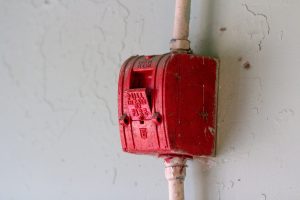Have you heard about the changes to the NSW residential tenancy laws?
No worries – we’re here to help you out!
At Upstate, our mission is to make the lives of tenants and landlords like you easier – which is why we’ve compiled this quick summary to help you get up to speed with the changes and the reasons why these regulations are important.
Just remember – this is just a brief snapshot.
To view the full content of the NSW Tenancy Law Changes 2020 and read the complete details the NSW Government has released, simply click here.

New residential tenancy laws start on 23 March 2020
These changes come into effect on the 23 March 2020 and include amendments to the Residential Tenancies Act 2010 and the new Residential Tenancies Regulation 2019.
Why are these changes being made?
The revisions are designed to improve both the welfare of landlords and tenants by setting clear expectations around your rights, your obligations to each other, and the responsibilities regarding the leased property. Let’s get into it, shall we?
And remember- you can always contact your Upstate Property Management team if you have any further questions.
P: 9971 9000E: hello@upstate.com.au
______________________________________________________________________________________________________________________
Click on the links below to go straight to the chapter you’re after.
-
Minimum property standards: ‘fit for habitation’
-
New smoke alarm obligations
-
Tenants can make minor alterations or renovations
-
Damage and the removal of modifications
-
New mandatory break fees for fixed-term lease agreements
-
Strengthened information disclosure requirements about a property
-
New information disclosure requirements about a property
-
New information to be disclosed to prospective strata tenants
-
Remedies for tenants for breaches to information disclosure
-
Water efficiency measures
-
The new rectification order process for leasing disputes
-
The new standard form of agreement
-
Other changes
______________________________________________________________________________________________________________________
It’s the Landlords’ responsibility to ensure that their rented property is “fit for habitation” when a tenant has a lease to live in it.

The modified tenancy laws set out 7 key standards of what this means:
- A structurally sound property
- Adequate lighting in each room (except storage rooms or garages)
- Adequate ventilation
- Supplied with electricity or gas with adequate outlets for lighting, heating and appliances
- Adequate plumbing and drainage
- Connected to water for the supply of hot and cold water for drinking, washing and cleaning
- Contains bathroom facilities, including toilet and washing facilities, which allow user privacy.
All NSW properties must meet and maintain these 7 minimum standards by 23 March 2020, onward.
______________________________________________________________________________________________________________________
New smoke alarm obligations
Fire is a serious threat to lives and property.
If you are a NSW landlord, you are now expected to ensure that smoke alarms installed in your rented property are fully functioning from 23 March 2020.
You (or your assigned Agent) have the right to enter the property to inspect or assess the smoke alarms, so long as proper notice was sent to your tenant.

Landlord’s obligations: Smoke Alarms
If you are a landlord, it’s your responsibility to:
- carry out annual checks to ensure all installed smoke alarms are in working order
- replace the battery in all smoke alarms in the period specified by the manufacturer
- repair or replace a smoke alarm that is not working within 2 days of becoming aware that it is not working
- replace a smoke alarm with a new unit within 10 years from the manufactured date (or earlier if specified by the smoke alarm manufacturer).
Tenant’s obligations: Smoke Alarms
If you are a tenant, it must report if a smoke alarm needs repair or replacement.
You can change the battery yourself, but you must notify the landlord (or agency).
You can also repair or replace a malfunctioning smoke alarm if your Landlord doesn’t act according to their obligations, above. If you provide appropriate evidence, you are also entitled to be reimbursed for the cost.
______________________________________________________________________________________________________________________
Tenants can make minor alterations or renovations
Are you a tenant who’s interested in making small tweaks to your home?
If yes, you must ask for your landlord’s written consent.
However, if your request for an addition, alteration or renovation is of a “minor nature”, your landlord can’t deny it.

Examples of the types of changes that may be considered reasonable include:
- installing window safety devices for small children
- installing additional security features
- putting a reasonable number of picture hooks in the wall
- planting some vegetables or flowers in the garden
- replacing the toilet seat
- installing a grab rail in the shower for elderly or disabled occupants.
The new Regulation provides a list of these changes that are deemed minor in nature.
It’s important to always ask your Landlord, as some alternations are required to be carried out by a qualified person.
______________________________________________________________________________________________________________________
Damage and the removal of modifications
If you are a tenant, you must leave the property at the end of your tenancy in the same condition as when you first arrived (except for reasonable ‘wear and tear’, of course).

This means all additional fixtures, additions and renovations you paid for must be removed at your own expense. Damages must also be repaired.
Landlords, on the other hand, may seek compensation from a tenant if they are not satisfied with how these modifications were removed or repaired.
______________________________________________________________________________________________________________________
New mandatory break fees for fixed-term lease agreements
What happens when a tenant breaks a fixed-term Lease agreement early?

They are required to pay a break fee according to the following:
- 4 weeks rent if less than 25% of the lease had expired
- 3 weeks rent if 25% or more but less than 50% of the lease had expired
- 2 weeks rent if 50% or more but less than 75% of the lease had expired
- 1 week’s rent if 75% or more of the lease had expired.
These mandatory break lease fees only apply to new fixed-term agreements that are 3 years or less.
______________________________________________________________________________________________________________________
Strengthened information disclosure requirements about a property
If you are a tenant, make sure you review this updated checklist first before signing a new tenancy agreement.
It lists the facts that landlords must disclose to prospective tenants, to protect you from being misled by false statements or conditions.
These new regulations also allow tenants to request a remedy when the correct information is not properly provided.
______________________________________________________________________________________________________________________
New information disclosure requirements about a property
Starting from March 2020, a landlord or agent will also need to additionally disclose the following information:
- If the property has been used for the manufacture or cultivation of a prohibited drug or plant in the last 2 years.
- If the property is in a strata scheme where scheduled rectification or repairs will be carried out to common property during the term of the lease.
- If the property is located in a building where there is a notice or a current order to rectify the building for external combustible cladding.
______________________________________________________________________________________________________________________
New information to be disclosed to prospective strata tenants
All NSW landlords or agents must provide tenants with a copy of the strata scheme’s by-laws and must notify tenants if a strata renewal committee is going to occur.
If you are tenant, this will give you greater protection before you sign a tenancy agreement.
This only applies before entering into a new residential tenancy agreement.
______________________________________________________________________________________________________________________
Remedies for tenants for breaches to leasing information disclosure
If the landlord fails to disclose the information mentioned above, a tenant can end a tenancy agreement by giving at least 14 days’ notice.
If you are a tenant, you can also ask the Tribunal to release an order ending the tenancy and compensating you for any costs incurred as a result of this contract termination.
______________________________________________________________________________________________________________________
Water efficiency measures
Are you a landlord wanting to transfer the water charges to your tenant?

Then, you must ensure that:
- the residential property is separately metered
- the water efficiency measures are met, and
- the charges do not exceed the amount payable.
The new laws also require landlords to check all taps and toilets before the start of a tenancy.
By March 2025, all toilets must be dual flush with a minimum of 3-star rating in accordance with the Commonwealth Water Efficiency Labelling and Standards (WELS) scheme.
______________________________________________________________________________________________________________________
The new rectification order process for leasing disputes
From 23 March 2020, NSW Fair Trading will be upfront in managing and resolving disputes between tenants and landlords over repairs, maintenance and property damage.
Whether you are a landlord or a tenant, you can always apply and ask for NSW Fair Trading to help you resolved an issue – especially if negotiations with the other party haven’t gone very well.
______________________________________________________________________________________________________________________
The new standard form of agreement
The standard leasing form of agreement and condition report have been updated to reflect the new laws and to increase the transparency between landlords and tenants.

Your Upstate Rental team can supply this to you as requested.
______________________________________________________________________________________________________________________
Other changes
- rent increases for continuing leases will be limited to occur only once every 12 months
- there is a new definition for ‘separately metered’ to reduce disputes between tenants and landlords about who pays for utility usage charges
- it’s now easier for tenants to get repair orders from the NSW Civil and Administrative Tribunal
- there are stricter rules around taking photos and videos during inspections and publishing them to advertise the property for sale or re-lease, especially where the tenant’s possessions are visible
- tenants must be able to access their own personal information held on tenancy databases without being charged a fee
- there are now mandatory terms that cannot be modified or excluded from fixed-term tenancy agreements of 20 years or more.
______________________________________________________________________________________________________________________
Want more information?
Our Upstate Property Management team are here to help you.
If you have any questions or would like more information, contact us today.
Visit the NSW Legislation website to read the new laws in full.
Residential Tenancies Amendment (Review) Act 2018
Residential Tenancies Regulation 2019






